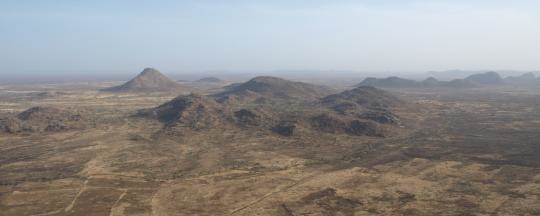Sudanese rebel movement, the SPLM-N, stated yesterday that they will not allow access to areas they claim to have control of in the light of the recent security agreement. They also dismissed Sudan’s commitment to ‘withdraw’, claiming that their forces have already been driven out by force from some border areas.
Jadiaka Amoga Dalman, the SPLM-N’s information secretary in the Nuba mountains, claimed that the SPLA-N (the movement’s military wing) control a sizeable chunk of land along the Sudanese side of the border between South Sudan and Sudan. As a result, he claims that they are ‘surprised’ by Sudan’s pledge to demilitarise the border, in an agreement tp which the rebels were not party.
“We are controlling areas along the border zone, which is more than 2600 km [sic]. We are the ones with control over it so these areas are outside of the mandate of the agreement because the government of Sudan is not present in these areas. The agreement says that it will be implemented in the areas under the control of Sudan’s government and areas belonging to South Sudan. So we in Nuba Mountains region, we are not concerned with the agreement and it will not involve us,” Jadiaka announced.
The boundary between Sudan and South Sudan is roughly 2000 km long. Stretches of the border between South Kordofan and Unity states, and Blue Nile and Upper Nile states, are definitely known to be transited and controlled by SPLA-N, but the exact distances under rebel control or threat are not verified.
The spokesperson noted that the committee responsible for implementing the agreement will not be visiting SPLA-N areas as part of the demilitarization verification process given that there is ongoing civil conflict and the SPLA-N were not party to the negotiations in Addis Ababa.
“The security arrangement committee will not able to access these areas because they are under our control and as we are fighting government forces in these areas… So these agreements are concerning the two countries are we are not part of these agreements.”
Khartoum and Juba declared on the 8th March their commitment to the implementation of an agreement signed by them last year to demilitarise the border in order to create a ‘buffer’ zone.
However, the SPLA-N has been at war with the Sudan Armed Forces (SAF) since 2012 in the border state of Blue Nile and since 2011 in its neighbour South Kordofan.
“Our problem is with the regime in Khartoum which we are intending to destroy and build a democratic and secular country where the rights of others are respected. This is what we are focusing on these days and in the coming days,” Jadiaka explained.
He further expressed that they are keen to open safe corridors for the delivery of humanitarian assistance to the war victims in South Kordofan, in spite of Khartoum’s rejection.
Photo file: South Kordofan




